 Pirates and Privateers Pirates and Privateers
The History of Maritime
Piracy
Cindy Vallar, Editor
& Reviewer
P.O. Box 425,
Keller, TX 76244-0425
    
The Evolution &
Suppression Continue
Law & Order: Pirate Edition (part 3)
by Cindy Vallar
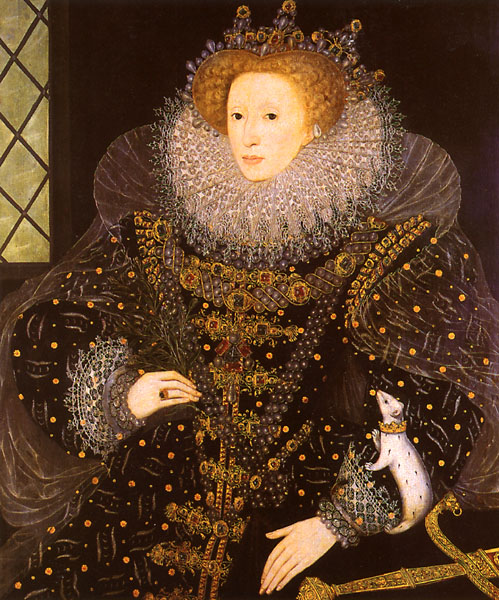 When Elizabeth I came to power in
1558, she began instituting changes that subtly
altered how England defined piracy. Her policies saw
pirates as “unlicensed sea-raiders” rather than
traitors. (Craze, 659) In March of 1751, she issued
five directives regarding English coasts. When Elizabeth I came to power in
1558, she began instituting changes that subtly
altered how England defined piracy. Her policies saw
pirates as “unlicensed sea-raiders” rather than
traitors. (Craze, 659) In March of 1751, she issued
five directives regarding English coasts.
1st. That
no pirate of whatever nation shall enter any of
her ports or the Downs, under penalty of losing
the ship which he brings, and imprisonment for
himself.
2nd. That no
subject of the Queen, or other inhabitant of her
realm, shall send or supply any victuals or
stores of any sort to the said pirates, and
shall not receive goods from them, or deal with
them directly or indirectly.
3rd. That it is
the Queen’s will that these clauses shall be
obeyed, and that any infraction of them shall be
punished by the arrest of the offenders by the
Governors of the ports, to be held until further
orders from the Queen and Council.
4th. That any
person found culpable, after the publication of
this, shall be punished as a disturber of the
Queen’s peace.
5th. That any
subject of the Queen who may have offended in
this way, and will make confession of the same,
and declare those whom he knows to be guilty,
shall be himself pardoned. (Simancas, 4
March. 239)
These declarations proved
ineffectual, possibly because no one paid attention
to them. On 23 August, the Spanish ambassador to
England wrote to King Felipe II that
the guns
from the castle and ramparts of Dover had
prevented Flemish ships from taking the
twenty-four pirate vessels which were there.
Twentytwo of them are now on the beach, our
ships having captured the other two. The pirates
have left a few of their sailors in charge of
them and the captains and rest of their people
have come to London. The assertions made at
Court that the pirates would be arrested is not
true . . . . (Simancas, 23 Aug., 273)
Rather than condone
piracy, which was what Elizabeth seemed to be doing,
Felipe II of Spain had a different way of halting
piracy. Sir Richard Hawkins, one of
Elizabeth’s Sea Dogs, wrote,
[I]f this
Spanish shippe should fall athwart his King’s
armado or gallies, I make no doubt but they
would hang the captaine and his companie for
pirates . . . by a speciall law, it is enacted,
that no man in the kingdomes of Spaine, may arme
any shippe, and goe in warre-fare, without the
King’s speciall licence and commission, upon
paine to be reputed a pirate, and to be
chastised with the punishment due to corsarios.
(Hawkins, 232)
When James I ascended the English
throne in March 1603, he wanted peace, and to
achieve that he was determined to bring about an end
to piracy no matter what. He issued numerous
proclamations to ensure this happened. In October,
Secretary Giovanni Carlo Scaramelli sent a missive
to his superior, the Venetian Doge, and the Senate.
English pirates had attacked the Venetian
ambassador’s ship and stolen from him.
The Judge
of the Admiralty (Aldemari) has been for two
days in Southampton, drawing up the indictment
against the pirates . . . Five . . . have been
arrested, and on their information more stolen
goods are being discovered. The prisoners insist
that the ship they sacked was not Venetian,
though the money and the nature of the goods
prove it to have been so; but the judge says . .
. that without a confession from one of them, or
further proof, would it be possible to condemn
them to death. (Venice, Oct. 22., 145.)
Scaramelli’s words
emphasized the fact that without the pirates fessing
up or witnesses testifying to the defendants’
criminal acts, English law basically assured that
they would get away with their crimes. James was fed
up with such marauding, each act like a slap to the
face, so he issued a proclamation, which Scaramelli
included with his report. This time, James also went
after those who abetted the pirates.
A
Proclamation to repress all Piracies and
Depredation upon the Sea.
The King is
informed, through the manifold and daily
complaints made by his own subjects and by
others, of continual piracies and depredations,
“committed on the seas by certaine lewd and
ill-disposed persons.” The ordinary proceedings
have proved ineffectual to stop the mischief.
He now makes the
following order: –
Pain of death,
not only for Captain and mariners, but for
owners and victuallers of any “man-of-warre,”
which shall commit piracy, depredation, or
“murther at the sea upon any of his Majesties
friends.”
Pain of death
for anyone who seizes any goods belonging to
subjects of allies.
All fresh
“Admirall causes” to be summarily tried by
Admiralty Judge.
No appeal from
his sentence.
“No prohibition
in such cases of spoile and their accessories or
dependances be granted hereafter.”
A record of the
restitutions to strangers to be kept.
All
Vice-Admirals to certify the Court of Admiralty
every quarter of all “men-of-warre” put to sea,
or returned home with goods taken at sea, or the
produce thereof, the fine of forty pounds for
each breach of this order.
The King’s
subjects shall forbear from aiding or receiving
any “Pirat or sea rover,” and likewise from all
traffic with them.
The
Vice-Admirals, “Customers,” and other officers
shall not allow any ship to go to sea without
first searching her, to see whether she is
furnished for the wars and not for fishing or
trade. In any case of suspicion, good surety
shall be exacted before they let the ship sail.
The officers shall answer for such piracies as
may be committed by those who have sailed with
their licence.
“Divers great
and enormous spoyles and piracies have been of
late tyme committed within the Straits of
Gyblaltar by Captain Thomas Tomkins, gentleman,
Edmond Bonham, Walter Janverin, mariners, and
goods and moneys brought by them to England have
been scattered, sold, and disposed of “most
lewdly and prodigally, to the exceeding
prejudice of his Majesties good friends, the
Venetians.” All officers are to arrest these
malefactors.
“Given at his
Majesties City of Winchester.” 30th September,
1603. (Venice, Oct. 22., 146.)
This and seven subsequent
proclamations attempted “to turn back the clock,
past the privateering commissions of Elizabeth and
even the laissez-faire policies of Henry VIII and
his predecessors, all the way to Edward III.”
(Burgess, Pirates, 30) To make certain that
juries did not sympathize with accused pirates and
acquit them, they would be tried “by the Judge of
the High Court of the Admiralty without admitting
unnecessary delay, and no appeal from him shall be
allowed to the defendant.” (Burgess, Pirates,
30)
These measures looked good on paper, but laws were
only part of the battle. Order, or follow-through,
in obtaining convictions and carrying out
punishments, was also important to the effectiveness
of these laws. In actuality, few pirates were
brought to justice. Eventually, James tried offering
pardons; pirates took advantage of these but often
returned to new plunderings.
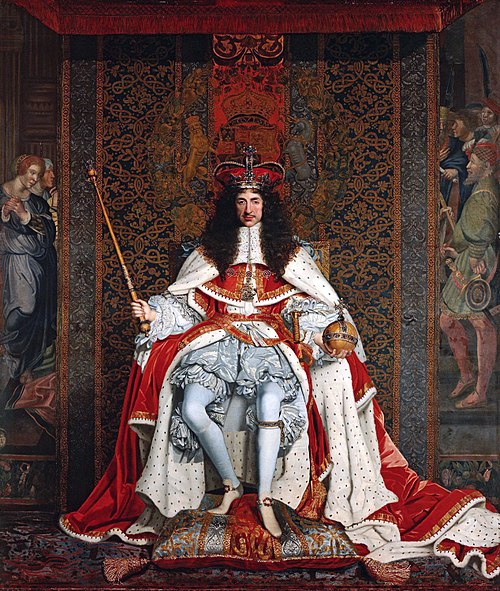 Charles II (1660-1685) tried a
different tack to curb piracy when Parliament passed
the 1670 Piracy Act (Chapter 11 22 and 23 Car Cha
2).6
This put the onus on the captains and their crews to
stop piracy. Rather than just give up without a
fight, which authorities saw as detrimental to
English trade and the nation’s reputation, merchant
ships were expected to be armed and to engage any
would-be sea rovers. If the master of any Charles II (1660-1685) tried a
different tack to curb piracy when Parliament passed
the 1670 Piracy Act (Chapter 11 22 and 23 Car Cha
2).6
This put the onus on the captains and their crews to
stop piracy. Rather than just give up without a
fight, which authorities saw as detrimental to
English trade and the nation’s reputation, merchant
ships were expected to be armed and to engage any
would-be sea rovers. If the master of any
English
Shipp . . . of the Burthen of two hundred Tunns
or upwards and mounted with sixteene Gunns or
more . . . shall yeild up the said Goods to any
Turkish Shipps or Vessells, or to any Pirates or
Sea rovers whatsoever without fighting . . . the
Master shall upon proofe thereof made in the
High Court of Admiraltie be from thenceforth
incapeable of takeing charge of any English
Shipp or Vessell as Master or Commander thereof
. . . .
If the master ignored
this ruling and was discovered, six months
imprisonment for each offense was warranted. For
those who commanded vessels of lesser tonnage and
armament who failed to defend themselves, they were
liable to suffer each and every “Penaltyes”
mentioned in the piracy act. One of these included
the seizure, by the Admiralty, of the ship in
question.
The authorities also had the right to go after any
members of the crew who failed to do what was
expected of them in defense of the ship, cargo, and
themselves.
. . . if
the Marriners or inferiour Officers of any
English Shipp laden with goods and merchandices
as aforesaid shall decline or refuse to fight
and defend the Shipp when they shall be
thereunto commanded by the Master or Commander
thereof, or shall utter any words to discourage
the other Marriners from defending the Shipp,
That every Marriner who shall be found guilty of
declineing or refuseing . . . shall loose all
his Wages due to him together with such goods as
he hath in his Shipp, and suffer Imprisonment
not exceeding . . . six monthes and shall
dureing such time be kepte to hard labour . . .
.
If the captain wished to
fight against the pirates, but the men used force to
prevent him from doing so, the guilty seamen “shall
suffer death as a Felon.”
To provide the master and crew with an incentive to
fight against their attackers, the ship’s owners
were expected to pay each of them up to three pence
per each pound of the cargo’s value. If any seaman
was killed or sustained incapacitating wounds, this
money was expected to go to his widow and/or
children.
As the legalities of privateering and the
obligations required of merchant ships changed,
another shift began albeit at a slower pace. This
stemmed from the fact that merchants and plantation
owners became more important to the economy of
England and her colonies. The growth of that
importance manifested itself in their increasing
power to influence Parliament and legislatures.
Another incident that influenced how piracy was
perceived and, in time, resulted in new laws being
passed involved a pirate attack in the Indian
Ocean. In 1695, Muslim pilgrims were returning from
Mecca when Henry Every, Thomas Tew, and other pirates
attacked Fateh Muhammed and Ganj-i-Sawai,
Emperor Aurangzeb’s flagship. Enraged, the emperor
and his people lashed out at the English closest to
hand, those associated with the East India Company (EIC). At
the factory in Surat, sixty-three Englishmen were
shackled and imprisoned three to a cell. Contact
with anyone outside the factory walls was strictly
forbidden. Some were badly beaten; one was stoned
and died. They remained prisoners until almost the
end of June 1696.
In response to Emperor Aurangzeb’s outrage
and demand for justice, England’s Privy Council
issued the following proclamation in William III’s name.
William By
the Grace of GOD, King of Great-Britain, France
and Ireland . . . are Informed that Henry Every,
alias Bridgeman, together with several other
Persons . . . to the Number of about One Hundred
and Thirty, did . . . Commit several Acts of
Pyrracy . . . And that the said Henry Every, and
severals of his Accomplices, since . . . are
Returned to, and have Dispersed themselves
within this Our antient Kingdom, thinking, and
intending thereby to Save & Shelter
themselves from the Punishment & Execution
of Law . . . We being Resolved, that outmost
Diligence shall be Used for Seizing, and
Apprehending the Persons of such Open and
Villanous Transgressors; Do therefore . . .
Command, the Sheriffs . . . and Our Good
Subjects . . . to do their outmost Indeavour and
Diligence to . . . Apprehend the Persons of the
said Henry Every . . . together with . . . his
Accomplices, . . . and . . . Deliver him
or them Prisoners to the next Magistrat of any
of Our Burghs, to be by them keeped in safe
Custody until farther Order be taken for
bringing him or them to such . . . Punishment as
their Crime does Deserve, . . . and for
Incouraging the Magistrats . . . and any other
of Our Good Subjects to Search for, and
Apprehend such Nottrorious Rogues: We . . . do
make Offer, and Assure the Payment of the Sum of
Five Hundred Pounds Sterling for the said Henry
Every . . . and Fiftieth Pounds Sterling . . .
for every one of the other Persons . . . to any
Person or Persons who shail Seize and Apprehend
them or any of them, and Deliver him or them
Prisoners to any of the Magistrats of Our Burghs
. . . . (Proclamation)
Every eluded the
authorities, but six of his men were apprehended and
tried. When the jury returned its verdict, they
acquitted the men. One EIC official opined, “Some of
the old hardened Pirats said, they lookt on it as
little or no sin to take what they could from
Heathens as the Moors and other Indians were.”
(Hanna, 203) Perhaps the jury shared that sentiment.
Of course, not everyone thought well of the EIC, and
a verdict of innocence allowed the jury to give the
Company a bit of comeuppance.
The acquittal was a slap in the face to the Crown
which wanted to show how tough England could be on
pirates. Determined to see the pirates brought to
justice, the Crown tried a different tact. It tried
the six men a second time – just not for their
offenses against India. The new charges stemmed from
crimes (mutiny being one) committed against England,
and this jury declared the pirates guilty and the
six were executed. In all, only twenty-four members
of Every’s crew were ever brought to justice.
One result of Every’s attack and the subsequent
debacle in court was that the Board of Trade and
Plantation became an independent body, instead of
being answerable to the Privy Council. It was now
the board’s responsibility to examine all laws and
regulations passed in the colonies. These would no
longer be permitted to clash with England’s trade
policies.
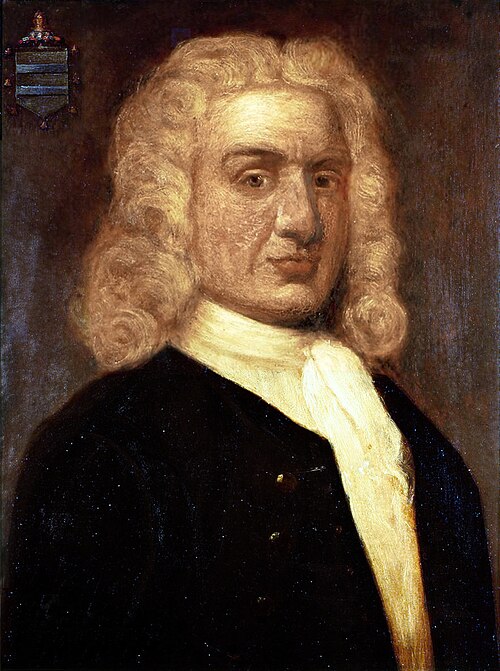 Another
outcome concerned the law against piracy. In 1696,
pirates had to be tried in England, even if they
committed their crimes anywhere else in the world.
This was part of Henry VIII’s 1536 Offences at Sea
Act. Many felt this requirement was archaic, in
addition to being expensive for individual colonies
to afford. If an arrested pirate was to be
transported to England, was he notorious enough or
was his case of political worth to warrant the
expense of sending him to England? One of the few
who were deemed to fall into either category was William Kidd, but what about
every other pirate who was arrested? A new law was
needed to remedy this, but since pirates were akin
to being traitors under Henry’s law, it was
necessary to revisit the definition of piracy. To
that end, Sir Charles Hedges, an Admiralty Court
judge, was approached. His legal perspective was
that Another
outcome concerned the law against piracy. In 1696,
pirates had to be tried in England, even if they
committed their crimes anywhere else in the world.
This was part of Henry VIII’s 1536 Offences at Sea
Act. Many felt this requirement was archaic, in
addition to being expensive for individual colonies
to afford. If an arrested pirate was to be
transported to England, was he notorious enough or
was his case of political worth to warrant the
expense of sending him to England? One of the few
who were deemed to fall into either category was William Kidd, but what about
every other pirate who was arrested? A new law was
needed to remedy this, but since pirates were akin
to being traitors under Henry’s law, it was
necessary to revisit the definition of piracy. To
that end, Sir Charles Hedges, an Admiralty Court
judge, was approached. His legal perspective was
that
piracy is
only a sea term for robbery, piracy being a
robbery committed within the jurisdiction of the
Admiralty.
If any man be assaulted within that
jurisdiction and his ship or goods violently
taken away without legal authority, this is
robbery and piracy. (Brooks, 61)
Two years later, William
III’s An Act for the more effectuall
Suppressions of Piracy reinforced this
definition of piracy.7 It also
explained why there was a need for altering where
trials would be held.
Persons
committing Piracies Robberies and Felonies on
the Seas in or neare the East and West Indies
and in Places very remote cannot be brought to
condign Punishment without great Trouble and
Charges in sending them into England to be tryed
within the Realme
and this reticence to
bring justice to the pirates persuaded honest seamen
that they had little to fear from turning pirate and
“that sort of wicked Life.” (William III) As a
result of the lack of prosecutions,
the
Numbers of them are of late very much increased
and their Insolencies soe great that unlesse
some speedy Remedy be provided to suppresse them
by a strict and more easie way for putting the
ancient Laws[,]
the situation would just
get worse. Consequently, captured pirates could now
be tried in vice-admiralty courts in any dominion
over which the English monarch ruled, instead of
returning the accused to England to stand trial.
Seven men were to sit in judgment, one of whom must
be “President or Chiefe of some English Factory or
the Governour Lieutenant Governour or Member of His
Majesties Councills in any of the Plantations or
Colonies aforesaid or Commander of one of His
Majesties Shipps.” (William III) The remainder could
consist of merchants, factors, planters, naval
officers, and masters of English merchant ships.
The oaths and procedures for a vice-admiralty court
trial were spelled out and those who sat in judgment
were to be impartial. Each accused must state
whether he was guilty or not guilty; if he refused
to plead, “he shall suffer such Pains of Death Losse
of Lands Goods and Chattells and in like manner as
if he or they had beene attainted or convicted upon
the Oath of Witnesses or his owne Confession.”
(William III) In other words, no plea was equivalent
to a guilty plea. If a pirate declared that he was
not guilty,
Witnesses
shall be produced . . . and duely sworne and
examined . . . in the Prisoners presence And
after a Witnesse hath answered all the Questions
proposed by the President of the Court and given
his Evidence it shall and may be lawfull for the
Prisoner to have the Witnesse crosse-examined by
first declaring to the Court what Questions he
would have asked and thereupon the President of
the Court shall interrogate the Witnesse
accordingly and every Prisoner shall have
liberty to bring Witnesses for his Defence . . .
and afterwards the Prisoner shall be fairly
heard what he can say for himselfe[.] (William
III)
When all was said and
done, the prisoners were taken away to allow the
judges to debate and vote on the guilt or innocence
of the accused. Once that was decided, the prisoners
returned to court to hear their fates. If “attainted
[they] shall be executed and put to Death at such
time in such manner and in such place upon the Sea
or within the ebbing or Flowing thereof as the
President or the major part of the Court . . .
directed”. (William III)
This act also conferred the status of pirate upon
any master or seaman who went on the account. This
included anyone who acted as a go-between or tried
to corrupt crews. Those who mutinied were also
deemed pirates. Chapter nine of the statute
concerned those who aided and abetted pirates.
And
whereas severall evill disposed Persons in the
Plantations and elsewhere have contributed very
much towards the Encrease and Encouragement of
Pirates by setting them forth and by aiding
abetting receiving and concealeing them and
their Goods and there being some Defects in the
Laws for bringing such evill disposed Persons to
condigne Punishment Be it enacted by the
Authority aforesaid That all and every Person
and Persons whatsoever who after the Twenty
ninth Day of September in the Yeare of our Lord
One thousand seaven hundred shall either on the
Land or upon the Seas wittingly or knowingly
sett forth . . . are hereby declared and shall
be deemed and adjudged to be accessary to such
Piracy and Robbery done and committed[.] (William
III)
This included anyone who
helped the pirates after the fact, as well as
before, and if found guilty, each suffered the same
punishment as if he or she had been a pirate.
This law also addressed compensation for killed or
wounded seamen and rewards for informers. Any
governor who refused to adhere to this act forfeited
“all and every Charters granted for the Government
or Propriety of such Plantation.” (William III)
To be continued . . .
Notes:
6. Although enacted, there are no
extant documents to show whether anyone was ever
prosecuted under this act, according to Sarah Craze.
7. An interesting side note to
William’s anti-piracy legislation is that in 1700,
the Board of Trade issued “An act to punish
governors of plantations in this kingdom for crimes
committed in the plantations.” (Burgess, Politics,
193) The reasoning behind this was that colonial
governors who were chummy with pirates were
violating their charters, and therefore, the Board
decided to criminally prosecute such governors.
Resources (The list is so
extensive that I have placed it on a separate page.)
Copyright ©2025 Cindy Vallar
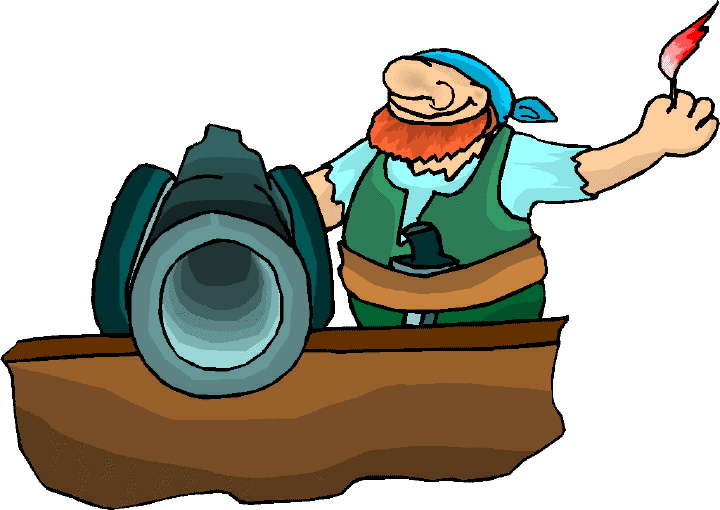
Click to contact me
Background image compliments
of Anke's Graphics |

 When
When 

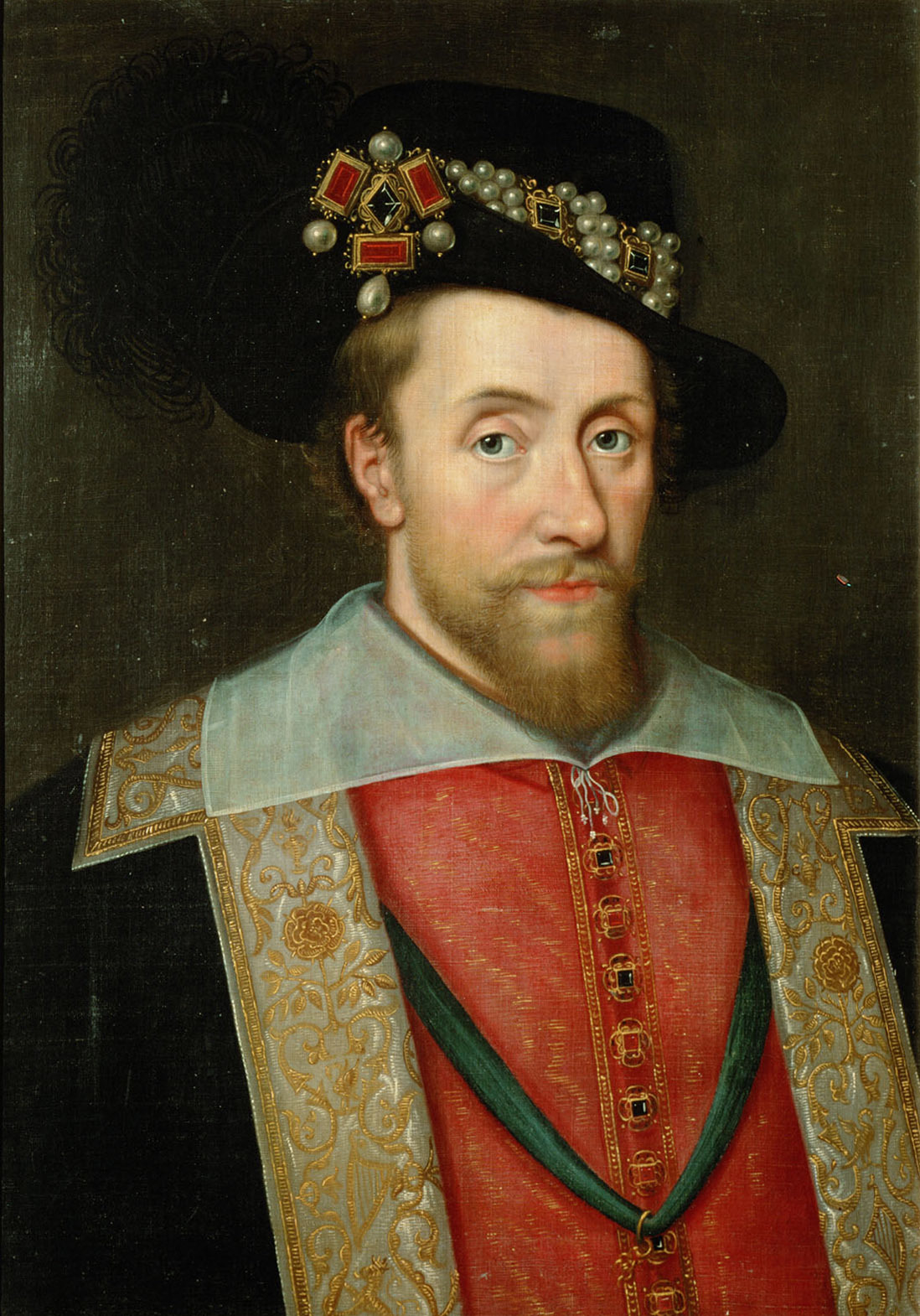

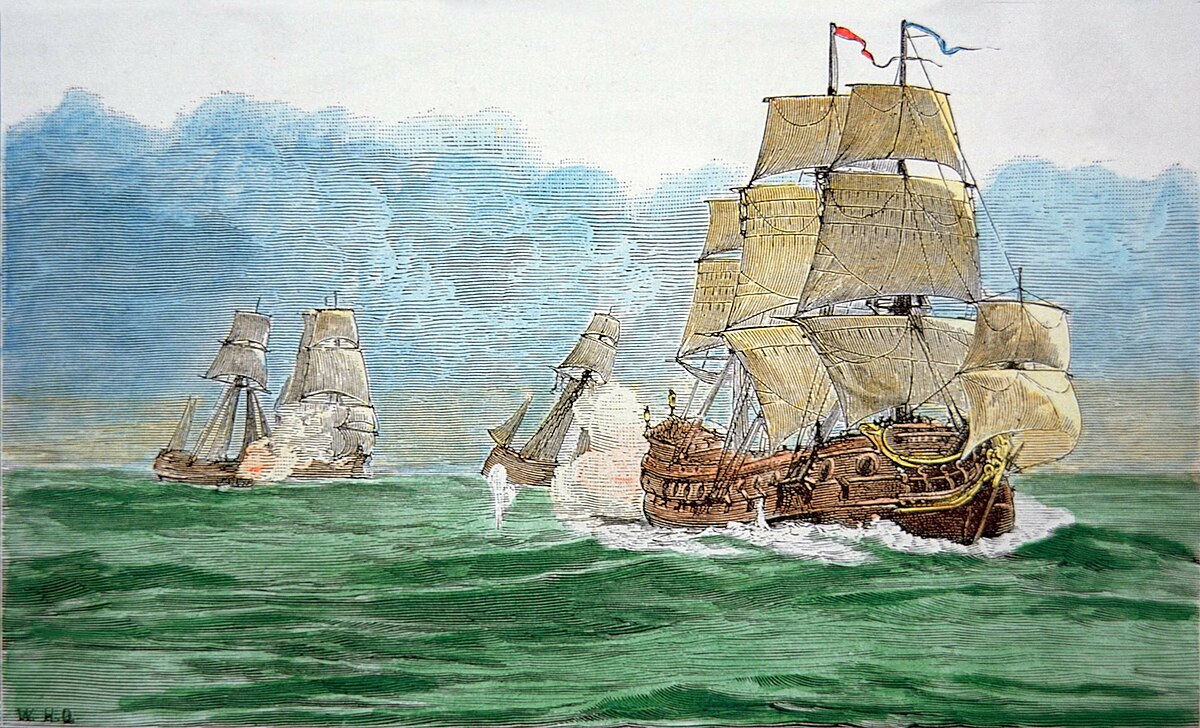

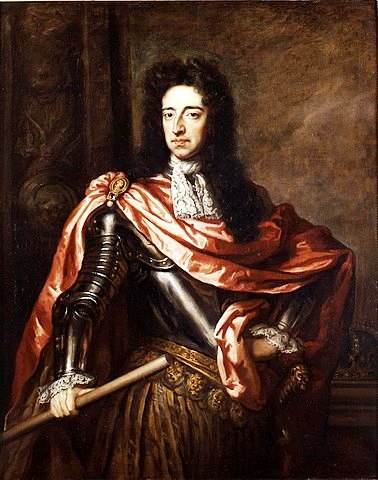
 Another
outcome concerned the law against piracy. In 1696,
pirates had to be tried in England, even if they
committed their crimes anywhere else in the world.
This was part of Henry VIII’s 1536 Offences at Sea
Act. Many felt this requirement was archaic, in
addition to being expensive for individual colonies
to afford. If an arrested pirate was to be
transported to England, was he notorious enough or
was his case of political worth to warrant the
expense of sending him to England? One of the few
who were deemed to fall into either category was
Another
outcome concerned the law against piracy. In 1696,
pirates had to be tried in England, even if they
committed their crimes anywhere else in the world.
This was part of Henry VIII’s 1536 Offences at Sea
Act. Many felt this requirement was archaic, in
addition to being expensive for individual colonies
to afford. If an arrested pirate was to be
transported to England, was he notorious enough or
was his case of political worth to warrant the
expense of sending him to England? One of the few
who were deemed to fall into either category was